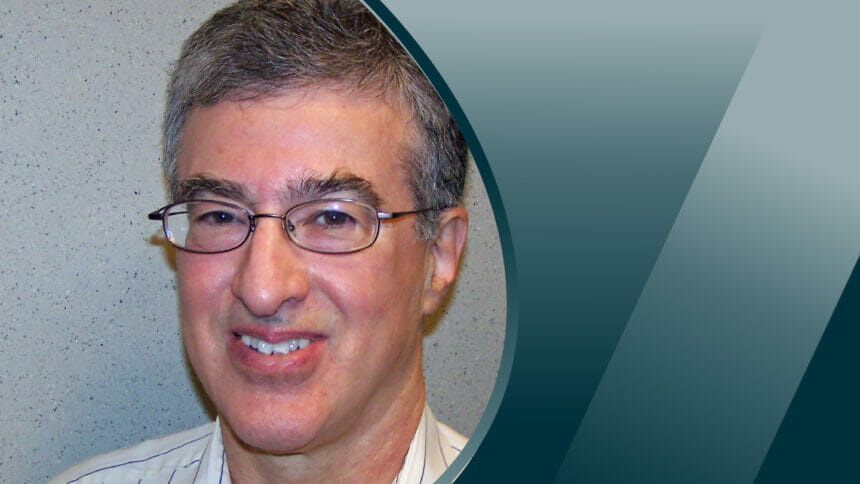
The amount of knowledge and skill involved in complying with the OBRA regulations is monumental. Every topic, from pressure injury prevention to behavior management, has many tec hnical details and clinical procedures.
For example, the Center for Medicare & Medicaid Services keeps expanding OBRA requirements, adding new ones such as “trauma-informed care.” The MDS keeps getting bigger but not necessarily better.
Nursing homes are chastised for not understanding behavior and are expected to provide “behavioral health” services (whatever they are) to attain and maintain everyone’s “highest practicable” outcomes.
Periodically, I look up the total number of citations in PubMed , the National Library of Medicine’s database. Unbelievably, PubMed currently has more than 35 million citations and abstracts of biomedical literature. In recent years, it has been growing at the rate of more than a million citations a year. That does not even include the myriad scientific, technical, academic and other databases in all other fields. COVID alone has added another 375,000 or so citations to the PubMed database.
We are all constantly challenged to do more and to know more. Of course, no one can know or recall even a tiny fraction of this and other information. So, we constantly have to rely on others’ alleged knowledge. We continually get assertions and conclusions, but not necessarily enough supporting information or rationale to explain those conclusions.
For example, a doctor or nurse practitioner says, “I know what I am doing with those medications” (sometimes, they actually don’t). A consultant says, “Here is how you should manage the resident” (they missed some important information). A nurse says, “We are following the regulations by not using certain medications for this resident” (she actually has never read the regulations and was just repeating what she had heard from others). An administrator says “You should call the doctor and get an order for antibiotics for this resident because of their abnormal X-ray.” (I saw this happen more than once.)
How do we know if any of them are telling the truth or giving us the straight scoop? Do we believe (or even understand) whatever CMS tells us in the OBRA State Operations Manual and their many transmittals and webinars?
How can we protect ourselves and our facilities if we hesitate to seek out information because we don’t know whether we need to find out more than we already know? We think we already know how things work, how to define behavior, how to prevent falls, and how to pick the right interventions for individuals with disruptive behavior. But do we really?
Do we accept or challenge them, wholly or partially? Do we look it up to confirm? What if we are unsure of what we read when we look it up? How do we know?
This brings us to the age-old dilemma: Not just how do we know what we know, but how do we know what we don’t know? They are actually two different but related questions.
We can only know what we don’t know by first willingly admitting that we may not know what we think we know. Philosophers call all of this “epistemology,” but we will save Descartes for another time.
When I started working in a nursing home early in my career (1978), and despite having trained in internal medicine, I had no formal training in geriatrics or medical direction. Here are suggestions, based on how I learned to do both.
I started by correctly assuming that I didn’t know what I was doing. I focused on identifying knowledgeable individuals and reliable information sources. I learned the importance of context. That is, I didn’t just seek out facts, but key frameworks that helped me understand how those facts fit into a bigger scheme. I read key references such as Reichel’s Clinical Aspects of Aging (still a good source in more recent editions).
There were no online sources or search engines in the 1970s and 1980s. Later, there were primitive online sources like Knowledge Index. Today, anyone can find almost anything they want or need on the internet. For some time, I have relied heavily on Google Search. Learning how to do a good search, which takes time and practice, is an invaluable skill for anyone, but especially those involved in healthcare.
Learning to use hypertext linking is a quick way to learn that there is more to any subject than what we already know. Even without stopping to read every link, you find areas to come back to later. For example, reading about kidneys will explain their important role in maintaining fluid and electrolyte balance, which leads to other articles about homeostasis, which leads to understanding the role of the brain and other organs in maintaining the body’s balances, which helps us understand how to think about someone with fluid loss from too many diuretics.
Another key tactic to learning what you may not know is to review and compare multiple (at least three) sources of information about the same subject. Reliable websites tend to validate each other’s information and advice. When there are significant differences among sites, I try to reconcile the different perspectives by finding people to discuss them.
I strongly encourage all managers, practitioners and key staff involved in running nursing homes to actually read the CMS State Operations Manual at least once and learn how to verify what you think you know and what you think the regulations say.
I even learned to check out whatever CMS sends out, not only because it is a foundation — not a textbook — for care, but also because it is not always accurate. For instance, in a 2013 memo, CMS stated that nursing home residents could be expected to have more symptoms after being taken off antipsychotics and that facilities should just continue with nonpharmacological interventions.
Further inquiry identified the risks of serious withdrawal from too rapid reduction, the need to be vigilant and identify a return of serious psychiatric symptoms, or how to decide whether and how quickly a patient might actually need the same or a different medication.
In my medical training, I learned very little about medication-related issues. In practice over time, I realized the enormous issues related to medications, including serious adverse consequences and interactions. For example, everyone has some anxiety, because anxiety is a natural, built-in part of the brain. Antidepressants are generally preferred over benzodiazepines for treating chronic anxiety. But antidepressants can have anxiety as a side effect and so may need to have a benzodiazepine added for the short term to help manage anxiety until the antidepressant is more fully active. Only some practitioners and nursing home staff know this; instead, they think that benzodiazepines are the primary and long-term treatment for anxiety.
In short, we are all suffering from tremendous information overload these days, and we face a huge challenge to apply it correctly in the right situations. As many individuals have already realized, we might recognize our need for more knowledge but we also should wonder what we don’t know that might be relevant to what we think we know.
Steven Levenson, MD, CMD, has spent 43 years as a physician and medical director in long-term and post-acute care settings in Maryland. He is a pioneer in medical direction, including his groundbreaking book, “Medical Direction in Long-term Care.” For 25 years (1988-2013), he served as a CMS advisor and consultant, helping develop clinically relevant surveyor guidance and training in many aspects of OBRA.
The opinions expressed in McKnight’s Long-Term Care News guest submissions are the author’s and are not necessarily those of McKnight’s Long-Term Care News or its editors.
Have a column idea? See our submission guidelines here.





